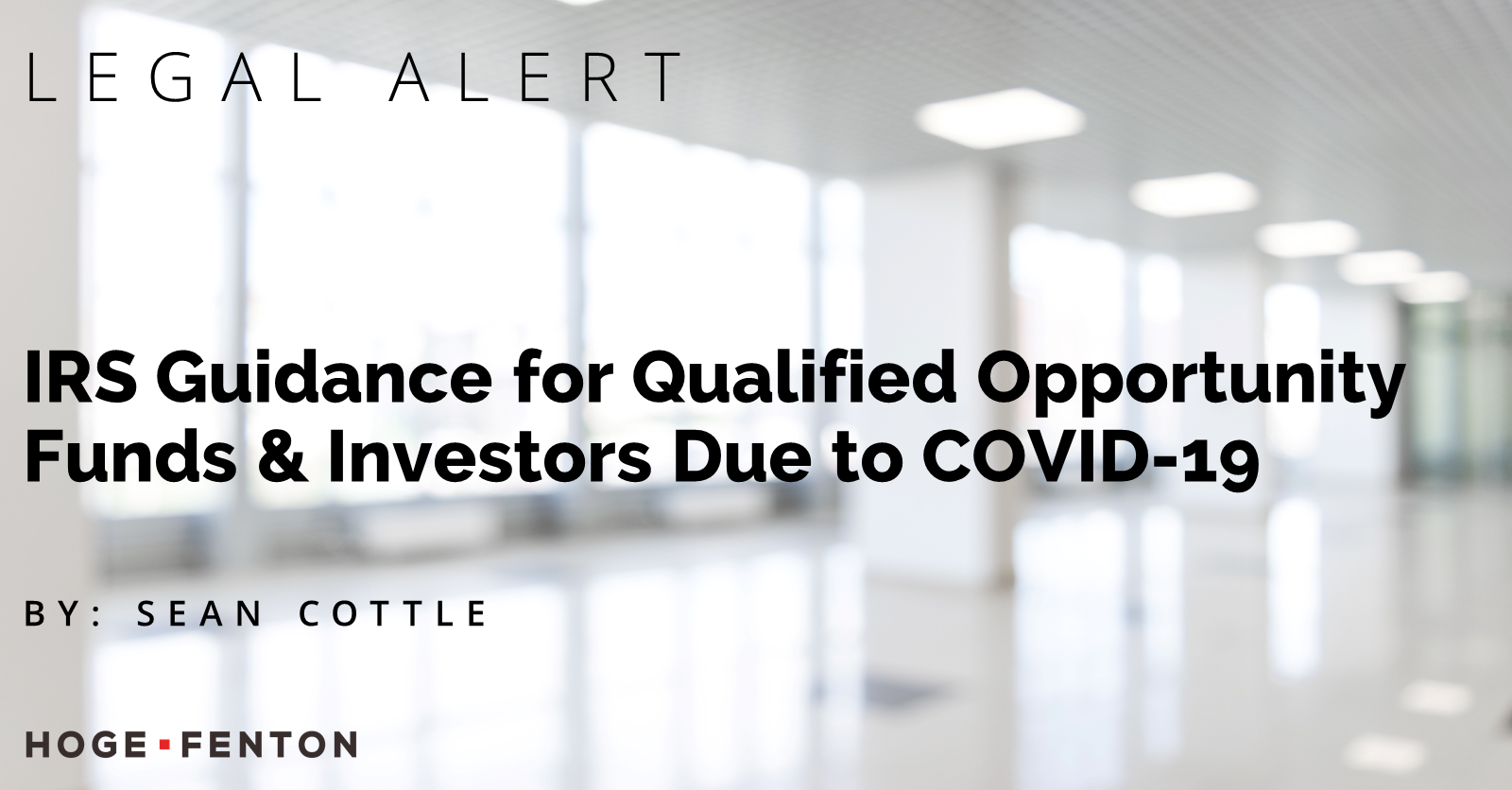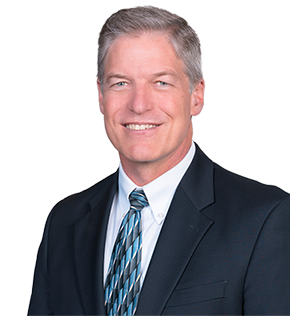IRS Guidance for Qualified Opportunity Funds & Investors Due to COVID-19
By Hoge Fenton | 07.6.2020 | Client Alerts

The Internal Revenue Service provided guidance on June 4, 2020 in the form of Notice 2020-39 (the “Notice”) as to certain relief to Qualified Opportunity Funds (QOF) and investors due to the COVID-19 pandemic.
The provided relief covers the following four points.
1) Additional time for investors to defer gain
The Notice provides taxpayers additional time to invest in QOFs until December 31, 2020 if the last day of the 180-day investment period for a taxpayer to invest in a QOF falls on or after April 1, 2020. Consequently, any taxpayer who has a gain from a qualified sale on or after October 3, 2019, does not have to make an investment in a QOF until on or before December 31, 2020. The taxpayer must make a valid deferral election per the instructions to Form 8949, complete Form 8997, and timely file the two forms with a timely filed Federal income tax return for the taxable year in which the gain would have been recognized.
2) No 90-percent investment penalty for 2020
The IRS has determined that if a QOF fails to meet the 90-percent investment standard between April 1, 2020 and December 31, 2020, the QOF does not need to pay the section 1400Z-2(f)(1) penalty for the taxable year of 2020 since the COVID-19 pandemic is considered a reasonable cause. The QOF must accurately complete and timely file Form 8996 for the affected taxable year. The QOF should insert a “0” in Part IV, Line 8 (Penalty).
3) The 31 months working capital assets expenditure is extended
A qualified opportunity zone business (QOZB) intended to be covered by the working capital safe harbor before December 31, 2020, may have up to a maximum 86-months to spend working capital assets if the QOZB is located in a qualified opportunity zone during the COVID-19 pandemic and satisfies each applicable requirement of section 1.1400Z2(d)-1(d)(3)(v) and (vi). The Notice gives an additional 24 months to the previously promulgated maximum 62 month period under 1.1400Z2(d)-1(d)(3)(vi).
4) 30-Month Substantial Improvement Period Extended
One of the three general statutory requirements of a QOF is to have the original use of the post-2017 acquired tangible property in the qualified opportunity zone begin with the QOF, or the QOF must substantially improve the acquired tangible property within 30 months of acquisition. Pursuant to the Notice, the period between April 1, 2020 and December 31, 2020 (9-months) is tolled for purposes of a QOF satisfying the 30-month substantial improvement requirement. Consequently, QOFs have an additional nine months to substantially improve post-2017 acquired tangible property in qualified opportunity zones.
As the COVID-19 pandemic continues to have an adverse impact on the U.S. economy and qualified opportunity zones, it is likely that the Secretary of the Treasury or the Internal Revenue Service may issue additional notices that provide further relief to QOFs and investors. Only time will tell.
Please reach out to Sean Cottle if you would like more formation about IRS Notice 2020-39 or qualified opportunity funds.
 |
|
Shareholder
Real Estate & Land Use
D: +1.408.947.2404
|
This information is provided as an educational service by Hoge Fenton for clients and friends of the firm. This communique is an overview only, and should not be construed as legal advice or advice to take any specific action. Please be sure to consult a knowledgeable professional with assistance with your particular legal issue. © 2020 Hoge Fenton









